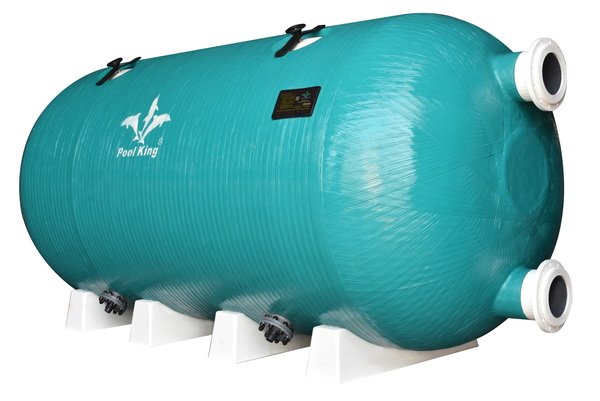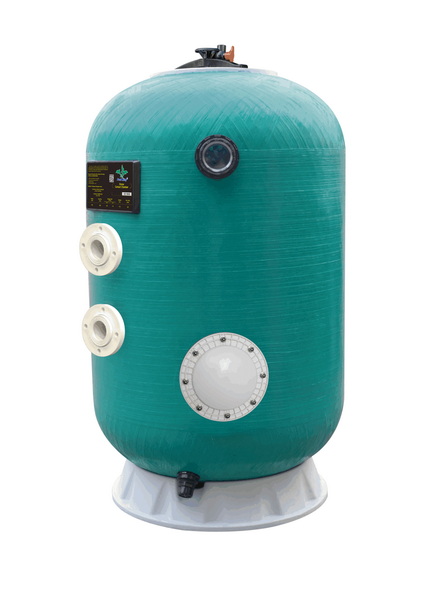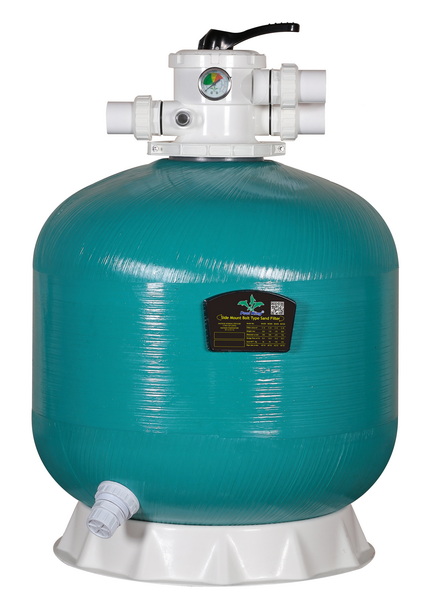Views: 222 Author: Tina Publish Time: 2025-08-02 Origin: Site








Content Menu
● Introduction: Why Pool Filter Sand Matters
● Key Characteristics of the Best Pool Filter Sand
● Main Types of Pool Filter Sand
>> 2. Zeolite Sand (Clinobrite)
>> 4. Other Emerging Filtration Media
● How to Choose the Right Pool Filter Sand
● Installation and Maintenance Tips
● Enhancing Pool Filtration Efficiency
● Frequently Asked Questions (FAQ)
>> 1. How often should I change my pool filter sand?
>> 2. Can I use regular sand in my pool filter?
>> 3. What is the ideal grain size for pool filter sand?
>> 4. Does glass or zeolite sand save on chemicals?
>> 5. Why is my pool still cloudy after changing the sand?
Filtering your pool's water is critical for maintaining clarity, hygiene, and swimmer comfort. Choosing the best pool filter sand is a decision that greatly affects the efficiency of pool filtration, maintenance efforts, and even water quality. In this comprehensive guide, we explore what makes top-rated pool filter sands stand out, compare the leading types, introduce new filtration media, and provide advice on sand selection, installation, and maintenance. By the end, you will be equipped to select the perfect filter sand that fits your pool's needs perfectly.

A swimming pool's filter system is its first line of defense against impurities, debris, algae, and bacteria. The sand inside the filter vessel plays a crucial role in trapping particles while allowing clean water to circulate back into the pool, keeping your pool water sparkling clear and safe for swimmers.
Maintaining clean pool water goes beyond just adding chemicals; the filtration system and its media are just as important for preventing cloudy water, algae growth, and bacterial contamination. Good filter sand enhances performance and reduces the operational cost of pool maintenance.
Pool filter sand is no ordinary sand — it serves as a granular barrier that traps suspended particles from pool water, allowing clear, filtered water to flow back into the pool system. Here's a step-by-step on how sand filters operate:
1. Water enters the filter from the pool pump, flowing downward through the sand bed.
2. Particles get trapped within the spaces between sand grains.
3. Clean water flows upward through the laterals and back into the pool.
4. Backwashing periodically reverses water flow to flush out trapped debris from the sand bed.
Because the water passes through millions of sand particles, the filtration efficiency depends heavily on the sand's grain size, shape, and purity.
For optimal filtration, the pool filter sand should fulfill these criteria:
- Grain Size: The ideal size is 0.45–0.55mm. Sand that is too coarse will let small debris pass through, while too fine sand can clog easily and reduce flow.
- Material: Typically, high-purity silica sand is preferred due to its durability and filtering ability.
- Purity: At least 95% quartz content and minimal contaminants, such as clay or dust, which can cloud pool water.
- Shape & Texture: Rounded grains promote better water flow and longevity compared to angular grains.
- Washed and Screened: Sand should be thoroughly washed and screened to remove dirt and dust, which can impair filtration.
- Origin: Crushed quartz grains
- Filtration Capability: Approx. 20 microns particle size
- Benefits: The most budget-friendly, widely available, robust with a lifespan of 3–5 years.
- Best For: General-purpose pools where cost-effectiveness and ease of maintenance matter.
- Origin: Natural volcanic mineral
- Filtration Capability: Filters particles down to 10 microns
- Benefits: Superior filtration, absorbs ammonia reducing chlorine demand, requires less backwashing, and is reusable.
- Best For: Swimming pools seeking premium filtration with chemical reduction.
- Origin: Crushed, recycled glass processed to uniform grain size.
- Filtration Capability: Filters very fine particles as small as 3–5 microns.
- Benefits: Long lifespan (5+ years), eco-friendly, capturing fine debris and algae very effectively.
- Best For: Pools with algae problems or those needing ultra-clear, fine filtration.
Besides sand, some pool owners use alternative media like:
- Activated Carbon: Removes organic contaminants and odors but often used alongside sand.
- Diatomaceous Earth (DE): Provides ultra-fine filtration but requires specialized filters.
- Perlite and Glass Beads: For specialized commercial or saltwater pools, providing fine filtration and longer service life.
These alternatives generally involve higher costs and sometimes more maintenance but offer superior water quality for specific needs.
| Type | Filtration Size | Lifespan | Pros | Cons |
|---|---|---|---|---|
| Silica Sand | ~20 microns | 3–5 years | Affordable, easy to find | Less fine filtration |
| Zeolite Sand | ~10 microns | 3–5 years | Chemical free, less backwash | Premium price, varies by region |
| Glass Filter Sand | 3–5 microns | 5+ years | Eco-friendly, fine filtration | Higher initial cost |
| DE | 3–5 microns | Frequent need to replace | Ultra-fine filtration | Complex system, costly upkeep |
Buying from reputable brands helps ensure you get sand that meets filtration standards. Some leading brands in the pool filter sand market include:
- Quikrete Pool Filter Sand: Known for uniform grain size, well washed and consistent quality.
- Hth Pool Filter Sand: Carefully screened and washed, promotes excellent water clarity.
- Fairmount Minerals Pool Filter Sand: High purity silica with consistent grain sizing.
- Mystic White II: Premium silica sand designed for finer filtration.
- ZeoSand: A popular zeolite product known for superior filtration and chemical savings.
Brands often provide detailed product data on grain size, purity, and usage recommendations — especially valuable for OEM pools and professional maintenance providers.

To select the correct sand for your pool, consider these points:
1. Filter Type Compatibility: Always check your filter manufacturer's specifications for recommended sand type and size.
2. Grain Size: Stick within the optimum 0.45–0.55mm range unless advised otherwise.
3. Purity and Source: Ensure the sand is washed, screened, and from a reputable supplier.
4. Filter Media Type Preference: Decide among silica sand, zeolite, glass, or others based on your pool's needs and budget.
5. Budget: Balance upfront cost with long-term performance and maintenance.
6. Environmental Considerations: If eco-friendliness is a priority, consider recycled glass sand or zeolite.
Installing or replacing pool filter sand can be done by following these procedures to avoid damage to your equipment:
- Safety First: Always turn off the pump and release pressure from the filter before opening it.
- Remove Old Sand: Backwash and then scoop out the old sand carefully.
- Clean the Filter Tank: Rinse thoroughly to remove residual debris.
- Protect the Laterals: Cover the standpipe to prevent sand from entering and damaging valves or laterals.
- Add New Sand Slowly: Pour the sand slowly to avoid air pockets and ensure even distribution.
- Fill to the Recommended Level: Avoid overfilling or underfilling, which affects filtration efficiency.
- Backwash After Installation: Run the system to flush out fine particles and settle the sand bed.
Maintenance practices to prolong sand life:
- Replace silica sand every 3–5 years.
- For glass or zeolite, lifespan may extend up to 7 years or more.
- Monitor water pressure; rising pressure indicates clogging.
- Check pool water regularly; cloudy or dirty water signals the need to clean or replace sand.
- Regularly backwash filters as recommended, generally weekly during high-use seasons.
To maximize the performance of your pool filter sand and overall filtration system, consider these additional tips:
- Combine Filtration with Correct Chemical Balance: A clean filter media removes particles, but balanced pool chemistry prevents algae and bacteria.
- Use Secondary Filters: Some pools benefit from secondary cartridge filters or ultraviolet disinfecting systems alongside sand filters.
- Routine Filter Inspections: Check the filter tank, valves, and pipes for leaks or wear.
- Avoid Using Improper Fillers: Never replace pool filter sand with builder's sand or beach sand as it causes equipment damage.
- Invest in High-Quality Pump: Proper water flow rates ensure the best filtering action without forcing water too rapidly through the filter.
The best pool filter sand is clean, high-purity, correctly sized, and comes from a trusted brand. For most standard pools, silica sand in the 0.45–0.55mm range offers economical and effective filtration. If you desire finer filtration with benefits like chemical reduction and longer media lifespan, zeolite or glass filter sands are excellent premium options.
Proper matching of sand media to your filter's design and regular maintenance ensure your pool remains crystal-clear, healthy, and enjoyable throughout the swimming season. Choosing the right sand upfront can save you time, money, and frustration in the long run.

Silica sand generally lasts 3-5 years depending on pool usage and maintenance. Glass media can last 5-7 years, and zeolite typically lasts 3-5 years but requires less frequent backwashing.
No. Regular sand is not graded, is contaminated with impurities, and is unsuitable for filtration. Using regular sand may clog the filter or degrade performance and shorten equipment life.
Most manufacturers recommend sand with a grain size between 0.45 and 0.55 mm for standard pool filters. Always refer to your filter's manual for exact specifications.
Yes. Zeolite holds ammonia which reduces chlorine demand, and glass sand filters out finer particles leading to improved water clarity and potentially reducing the amount of chemicals needed.
Cloudy water after replacing sand could be caused by incorrect sand size, improper installation, filter damage, or insufficient circulation and chemical balance. Double-check installation and pool chemistry.
